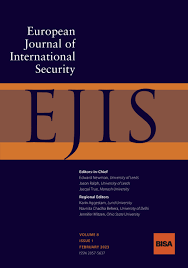
Abstract: Concerns over disinformation have intensified in recent years. Policymakers, pundits, and observers worry that countries like Russia are spreading false narratives and disseminating rumours in order to shape international opinion and, by extension, government policies to their liking. Despite the importance of this topic, mainstream theories in International Relations offer contradictory guidance on how to think about disinformation. I argue that disinformation is ineffective in terms of changing the policies of a target as regards to its foreign policy alignments and armaments – that is, the balance of power. To be strategic- ally effective, disinformation must somehow overcome three powerful obstacles: first, the fundamental uncertainty that international anarchy generates over any information broadcasted by adversaries; second, the pre-existing prejudices of foreign policy elites and ordinary citizens; and third, the countermeasures that are available even amid political polarisation. I examine the most likely case of there seemingly being a conscious and effective strategy that emphasises disinformation: the Russian campaign that has targeted the Baltic states, especially since the 2014 annexation of Crimea. The available evidence strongly suggests that the strategic effects of disinformation are exaggerated.
Alexander Lanoszka, Department of Political Science, University of Waterloo and Department of International Politics at City, University of London ( Email: alexander.lanoszka@uwaterloo.ca)
https://www.cambridge.org/core/journals/european-journal-of-internation…